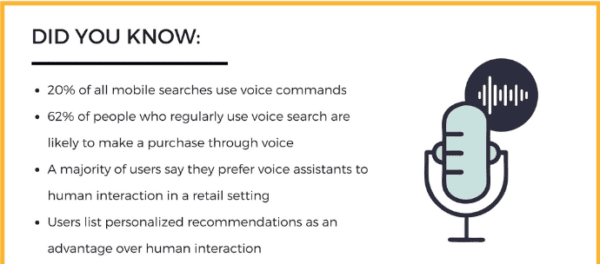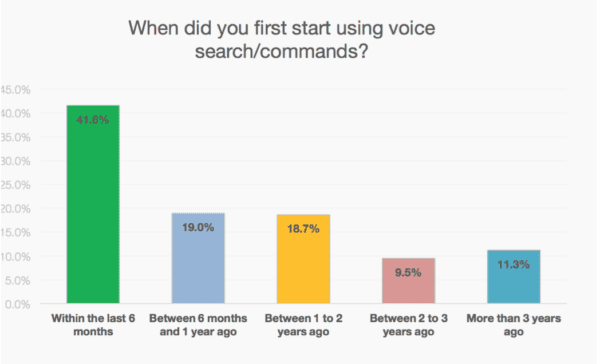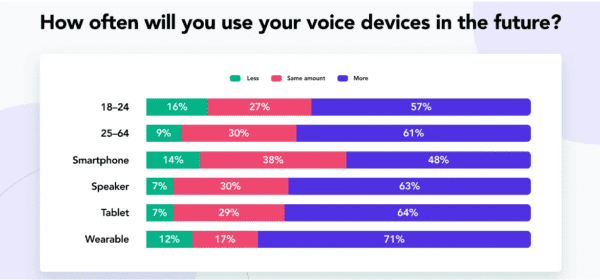Table of Contents
Voice Search in E-commerce: Overview
If you’re an e-commerce business owner, you’re probably always looking for ways to improve your online store’s visibility and attract more customers. One strategy that has gained popularity in recent years is voice search. With the rise of virtual assistants like Siri, Alexa, and Google Assistant, more and more people are using voice search to find products and services online. As a result, e-commerce businesses that optimize their websites for voice search have a better chance of attracting these potential customers.
Voice search technology allows users to search the internet using their voice instead of typing. It’s becoming increasingly popular because it’s faster and more convenient than typing, especially when people are on the go or have their hands full. In fact, according to a report by ComScore, 50% of all searches will be voice searches by 2022. This means that e-commerce businesses that don’t optimize for voice search risk falling behind their competitors and missing out on potential sales.
E-commerce businesses must adapt to the changing search landscape to stay competitive in today’s market. In this article, we’ll explore the benefits of voice search for e-commerce, how it’s transforming e-commerce marketing, and how you can optimize your website for voice search to attract more customers and increase sales. Whether you’re a small business owner or a marketing professional, this article will provide you with the information you need to stay ahead of the curve and succeed in the world of e-commerce.

Understanding Voice Search in E-Commerce
Voice search is revolutionizing the way consumers search and shop online. With the rise of voice assistants like Siri, Alexa, and Google Home, more and more people are using voice commands to make purchases, find information, and complete tasks online. As a result, voice search optimization has become a critical part of e-commerce marketing.
The Rise of Voice Assistants
Voice assistants are becoming increasingly popular. According to a report by eMarketer, nearly 128 million people in the US will use a voice assistant at least once per month in 2021. This number is expected to grow to 139 million by 2022.
Amazon’s Alexa and Google’s voice search are the two most popular voice assistants. Alexa has over 100,000 skills, while Google’s voice search can handle complex queries and even follow-up questions.
Voice Search Technology
Voice search technology uses automatic speech recognition (ASR) and natural language understanding (NLU) to interpret voice commands. ASR converts spoken words into text, while NLU analyzes the text to understand the meaning behind the words.
Machine learning and artificial intelligence (AI) also improve voice search accuracy. Voice assistants learn from user behaviour and adapt to their preferences over time.
In e-commerce, voice search can be used to find products, track orders, and make purchases. Optoptimizing your website for voice search can make it easier for customers to see what they’re looking for and increase sales.
Overall, voice search is changing the way consumers interact with technology. As voice-enabled devices become more popular, e-commerce businesses must adapt to this new way of searching and shopping online.

Voice Search and E-Commerce Marketing
As an e-commerce marketer, you must know the importance of voice search in e-commerce marketing. Voice search is changing the way people shop online. According to statistics, around 55% of American households were expected to own a smart speaker in 2022, and that number is expected to keep climbing as 5G networks come online. Therefore, optimizing your e-commerce website for voice search is essential to staying ahead of the competition.
SEO Strategies for Voice Search
To optimize your e-commerce website for voice searches, it would be best to focus on SEO strategies. One of the most important strategies is to focus on long-tail keywords. Long-tail keywords are more specific and conversational than short-tail keywords. Since voice searches are more informal, optimizing long-tail keywords will help your website appear in the voice search results.
Another SEO strategy for voice search is to optimize your website’s meta tags. Meta tags are HTML tags that provide search engines with information about your website. By optimizing your website’s meta tags, you can help search engines understand your website’s content and rank it accordingly.

Conversational Commerce and Customer Engagement
Conversational commerce is another vital aspect of e-commerce marketing that you should focus on. It uses messaging apps, chatbots, and voice assistants to communicate with customers. Using conversational commerce, you can engage with your customers more personally and provide them with a better shopping experience.
One of the best ways to use conversational commerce is to integrate a chatbot into your e-commerce website. A chatbot is a computer program that can converse with customers in real time. Using a chatbot, you can provide your customers with instant support and answer their queries in real-time.
In conclusion, optimizing your e-commerce website for voice search and using conversational commerce can help you stay ahead of the competition and provide your customers with a better shopping experience. Focusing on SEO strategies for voice search and conversational commerce can also improve your website’s search engine ranking, customer engagement, and sales.

Optimizing Voice Search in E-commerce
Voice search is rapidly becoming one of the most popular internet browsing methods. As an e-commerce business owner, optimizing your website for voice search is essential to ensure your products are easily accessible to customers. Here are some tips to help you optimize your e-commerce website for voice search.
Local SEO and Voice Search
Local SEO is essential for e-commerce businesses looking to optimize voice search. Ensure that your website is optimized for local search by creating local listings for your business. This will help voice assistants like Google Assistant and Siri provide accurate information about your business.
Creating Voice Search-Friendly Content
Creating voice search-friendly content is essential for e-commerce businesses looking to optimize voice search. Focus on creating content that answers the questions your customers are asking. Use natural language understanding and the right keywords to ensure your content is easily accessible to voice assistants.
When creating content for your e-commerce website, ensure it is user-friendly and easy to navigate. Use bullet points, tables, and lists to break up your content and make it easier to read. Additionally, ensure your website’s load speed is optimized for voice search. Google favours websites that load quickly, so getting on the first page of the search results is one thing, but ensuring that site visitors do what you intend them to do is another.
In conclusion, optimizing an e-commerce website for voice search is essential for staying ahead of the latest trends in e-commerce marketing. By focusing on local SEO, creating voice search-friendly content, and ensuring a user-friendly experience, you can ensure that your e-commerce business is accessible and appealing to your audience.

The Impact of Voice Search on Consumer Behavior
Voice search is changing how consumers interact with online shopping and e-commerce businesses. With the rise of voice-activated assistants like Amazon’s Alexa and Google Home, consumers can now shop online, search for products, and make purchases without leaving their homes.
Shopping Convenience and Voice Technology
One of the most significant advantages of voice search is its convenience to consumers. With voice technology, consumers can multitask while shopping, making it easier to complete other tasks while still shopping online. This has become especially important during the pandemic, as more people shop online for groceries.
Voice search also makes it easier for consumers to find the products they seek. With the ability to search using natural language, consumers can quickly find the products they need without having to navigate through multiple pages of search results.
Voice Search and the Path to Purchase
Voice search also changes the path consumers use to make purchases. With the ability to search and buy products using voice technology, consumers can purchase more quickly and efficiently than ever. This has led to increased impulse purchases, as consumers can make purchases quickly and easily without considering it.
However, voice search is also changing how consumers approach purchasing. With the ability to search for products using natural language, consumers can now search for products based on their intent rather than just the keywords they use. This means that e-commerce stores must focus on creating content optimized for voice search to ensure consumers find their products.
Overall, voice search is significantly impacting consumer behaviour in e-commerce. By offering greater convenience and changing the path to purchase, voice search is changing how consumers approach digital shopping and making it easier than ever to find and buy the products they need.

Challenges and Future of Voice Search in E-Commerce
As voice search technology continues to evolve, it is becoming more prevalent in e-commerce. While voice search presents many opportunities for online retailers, it also comes with challenges and concerns.
Privacy Concerns and Voice Search
One of the biggest concerns with voice search in e-commerce is privacy. Many consumers hesitate to use voice search technology because they worry about recording or sharing their personal information. As a retailer, addressing these concerns and assuring customers that their privacy is a top priority is essential.
To address privacy concerns, you can use secure servers to store customer data, provide clear privacy policies, and allow users to opt out of data collection. By taking these steps, you can help build trust with your customers and encourage them to use voice search technology.
Predictions for Voice Search Trends
Voice search is still a relatively new technology but is rapidly gaining popularity. It is predicted that by 2023, 8 billion digital voice assistants will be in use worldwide.

We will likely see more advanced features and capabilities as voice search technology improves. For example, voice search devices may become more personalized and tailored to individual users, allowing for a more seamless and intuitive experience.
In addition to these improvements, we can expect to see voice search become more integrated with other technologies, such as augmented reality and chatbots. This will allow retailers to provide customers with a more comprehensive and engaging shopping experience.
Overall, the future of voice search in e-commerce is bright, and retailers who embrace this technology will be well-positioned to succeed in the digital marketplace. By staying up-to-date with the latest trends and innovations, you can stay ahead of the competition and provide your customers with a seamless and personalized shopping experience.







